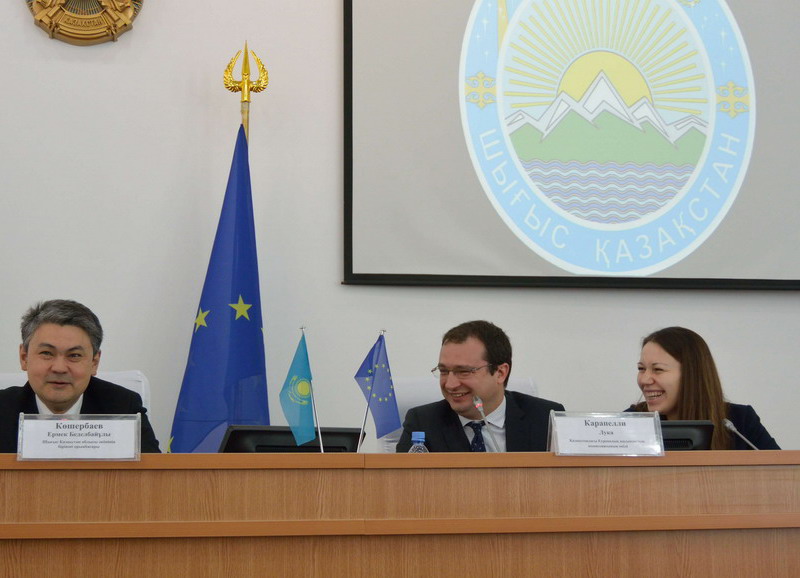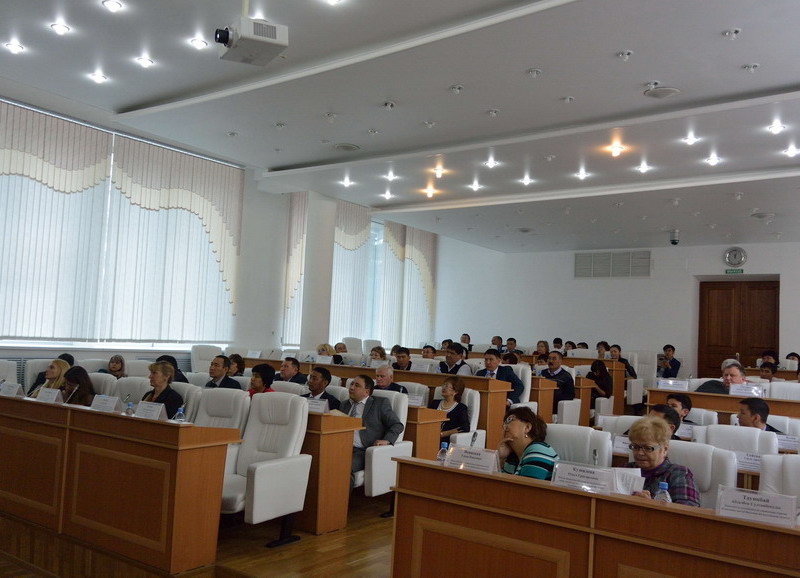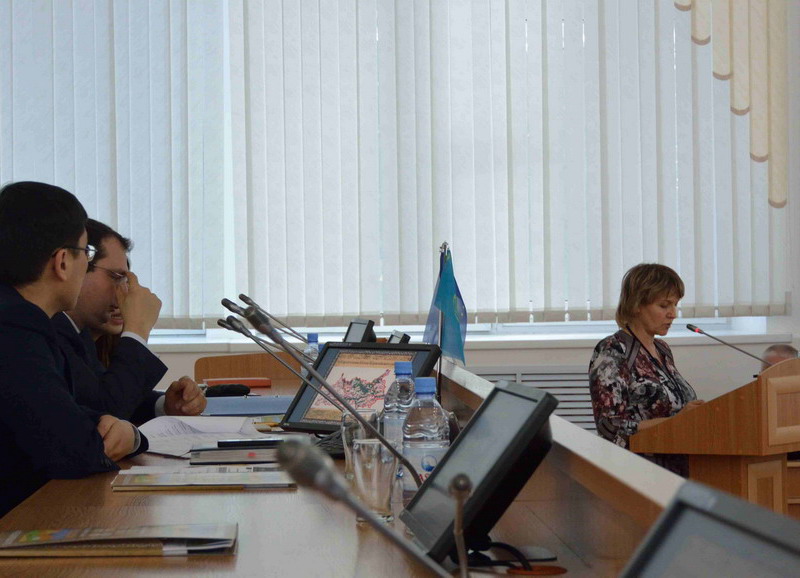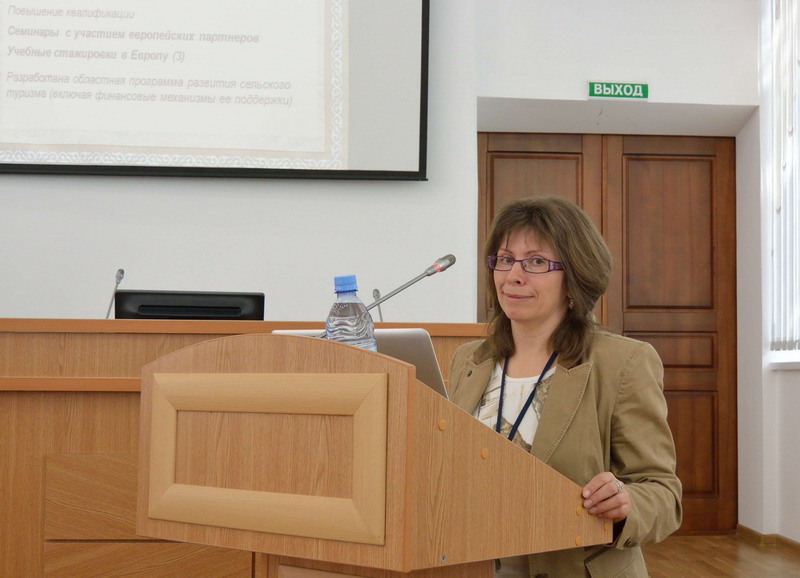Position conference "Rural tourism - a resource for development of rural mountain areas", April, 2014
The position conference "Rural tourism - a resource for development of rural mountain areas" organized by Machaon International and EcoAltai in April 2014 was attended by key stakeholders (municipal and village authorities, protected areas, entrepreneurs in agriculture and tourism, NGOs and other cultural actors - 43 participants in total). The conference was hosted by the Akimat of Eastern Kazakhstan oblast, which also invited representatives of all district akimats to the conference.
 |
 |
The main issues addressed by the position conference were the following interdisciplinary topics:
- how to integrate tourism into economic development creating revenue and employment for local communities in remote mountain areas;
- how to strengthen mutual stakeholder co-operation in creation and promotion of new tourism offers.
Golden Altai pilot project ideas as well as experience from several similar EU-supported projects in Eastern Europe, Russia and Belarus were also presented during the conference. The most appreciated part of the conference was interactive discussions between participants (11 April) which allowed better understanding of the importance to develop effective cooperation networks among different stakeholders. The participants also were invited to make inputs to SRTD strategy.
 |
 |
The conference was a major introduction to the extensive issues of sustainable rural tourism in different countries and attracted attention of local and regional authorities to importance to involve vulnerable groups in socio-economic initiatives related to sustainable rural tourism. EU countries, Belarus and Russia are one step ahead from Kazakhstan in this question. Hence, the conference gave an opportunity to Kazakh participants to increase their capacity and to get an insight into the practical aspects of this complex, but crucial theme.
The conference contributed to the establishment of new cooperation initiatives between relevant stakeholders not involved at the project preparation stage (e.g. local entrepreneurs, cultural and educational institutions) and fostered networking and sharing of ideas among participants.
